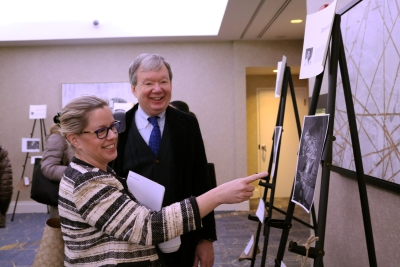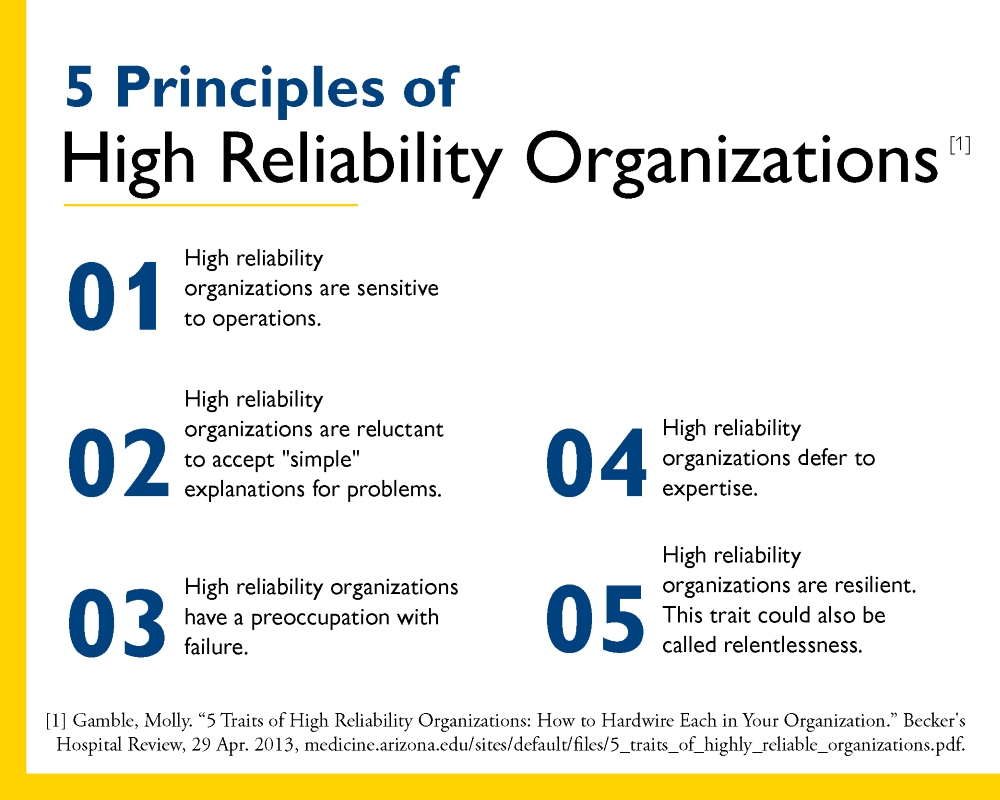FY20 Annual Report: National Capital Region
HRO Principles: Pandemic Approved

Over the past few years, regional leaders of Johns Hopkins Community Physicians’ (JHCP) National Capital Region (NCR), Bill Convey, then regional medical director, and Kimberly Zeren, director of operations, have navigated their leadership roles according to the five principles of Highly Reliable Organizations (HRO). With the COVID-19 pandemic affecting nearly every aspect of practice operations, fiscal year 2020 presented the NCR’s leadership dyad with an even greater need for structured problem-solving.
Convey and Zeren had tried using other leadership ideologies, but landed on the HRO principles as their guiding compass because of their practicability, achievability and natural fit into their day-to-day operations. “The principles are realistic and applicable – not just fluff that sounds nice,” Convey says. “We began applying them consistently throughout the region," he says, specifically instilling them in their region’s practice leadership dyads – practice administrators (PA) and office medical directors (OMD).
How have they gone about implementing? The most basic way was distributing a list to give the principles a formal structure, along with examples of situational applications, but far much more impactful than that, says Convey, is his and Zeren’s embodiment of the principles. “We try to make it evident in our leadership styles, and more specifically, in the questions we ask, like, ‘How is this going to fail?’ and ‘Who is the subject matter expert?’”
A shortcoming of many growing organizations is the disconnect between leadership and frontline operations. Curbing this pitfall, and exemplifying the first HRO principle – sensitivity to operations – Zeren will assume the roles of medical office assistant (MOA) or medical assistant when the need arises. “The first principle is my favorite,” Zeren explains. “So many times, leaders, including myself, will say, ‘here’s a task – now go do it,’ without really considering the how, or the why; without operationalizing it.” When new ideas or tasks are presented to practice leaders, Zeren and Convey will often ask the region’s dyads to think through how their implementation will work and how it will fail. They are encouraged to put together their own workflows and are given time to allow them to evolve, rather than implementing next-day changes.
 Director of operations, Kimberly Zeren, and then regional medical director, Bill Convey. [photo taken prior to the COVID-19 pandemic]
Director of operations, Kimberly Zeren, and then regional medical director, Bill Convey. [photo taken prior to the COVID-19 pandemic]Convey emphasizes the second principle as being integral to problem-solving. Instead of writing off a problem with an easy explanation, Convey believes that for all problems at practices, the assumption should be made that it is a practice-level cultural issue – no matter how local or isolated the original issue is. With culture as a default, you can begin to work in from that higher level to solve problems. “Working this way,” he says, “you often discover historical corollaries that point to the root of the problem.”
While all five of them are applicable, another that Convey and Zeren find themselves referring to often is number four: deferring to expertise. An example they give of this principle in action is a site that is suddenly encountering issues checking patients in at the front desk. Leaders should not make decisions for remedies in a silo, but should defer to the expert: the MOA at the front desk who has been successfully checking in patients for years.
Montgomery Grove's leadership dyad, Derek Sauer, practice administrator, and Kamal Deol, then office medical director, also find meaning in the fourth principle. “Opinions matter,” they say. “Soliciting opportunities from our diverse team of providers and clinical and administrative staff proactively predicts potential barriers to or enhancement of patient-centered care.”
Perhaps worth mentioning is that the NCR had zero “high-focus” practices in FY 2020. While the application of HRO principles cannot be credited for this achievement, it certainly does not hinder the success. Convey and Zeren maintain that the principles are very fluid: they all work together within conversation, and they can be used to orient and navigate problem-solving.

